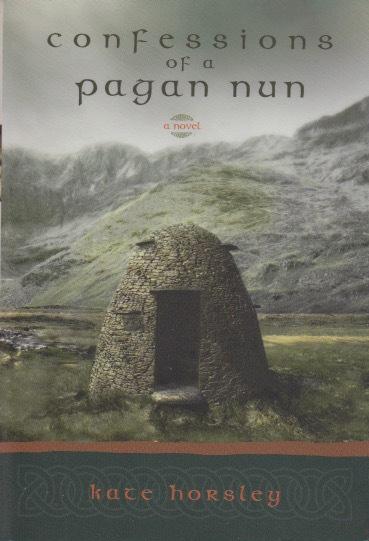
“I would live in a world of Christ-like humans, but not one full of Christians.” So Kate Horsley’s protagonist Gwynneve writes in Confessions of a Pagan Nun. This novel is an attempt to envision what life would’ve been like for a woman in medieval Ireland when Christianity came to the land. Gwynneve is a spiritual seeker who comes to be a nun when it’s clear that this new religion has taken over the old ways. Learning to write, she transcribes her story after hours in her clochan, or cell. She recognizes that Christianity has brought good things to Ireland, but at a high cost. The disparity between rich and poor increases, women are denigrated so that men can run things, and the land is ravaged for the benefit of their new way of living.
The novelty of the idea caught my attention when a friend pointed the book out to me. I was a bit surprised to see that Shambhala, generally a nonfiction Buddhist press, had published the novel. Since this is a story designed to make the reader think—it is contemplative, as a story from the point of view of a nun would likely be—the choice of publisher makes sense. While it’s not likely that a book published there would make the New York Times bestseller list, as an erstwhile writer myself I can attest that novels outside the usual pale have great difficulty in getting mainstream publishers interested. This too is a matter for contemplation.
One of the main themes of the story seems to be how a worshipper of the goddess Brigit has to become a devotee of St. Brigit when the church made the gods into saints. This is something that happened historically as well as in novels. Aware that it was easier to persuade individuals to convert to a new religion if they didn’t have to give up their gods, this seemed a small accommodation to make. Horsley is not wrong, however, in pointing out that Christianity was not a free ride. More than a religion, it was (and is) a powerful means for social control. The vision it offers tends to benefit men over women, the wealthy over the poor, the powerful over the weak. Despite what the Bible emphasizes, religion has its own conversion experience when it tastes power. Confessions of a Pagan Nun is a story intended to shift perspectives. The open reader will learn from contemplating its message.
